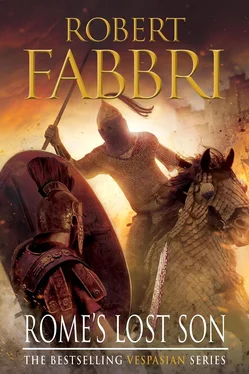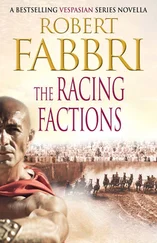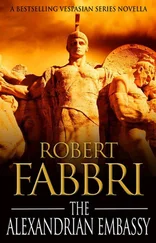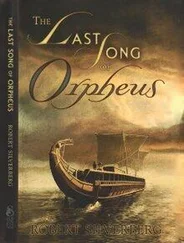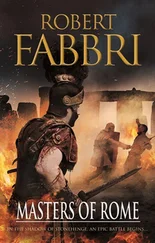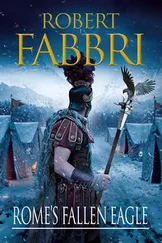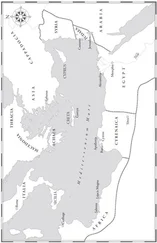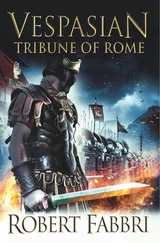Robert Fabbri - Rome's lost son
Здесь есть возможность читать онлайн «Robert Fabbri - Rome's lost son» весь текст электронной книги совершенно бесплатно (целиком полную версию без сокращений). В некоторых случаях можно слушать аудио, скачать через торрент в формате fb2 и присутствует краткое содержание. Год выпуска: 2015, ISBN: 2015, Издательство: Atlantic Books, Жанр: Исторические приключения, на английском языке. Описание произведения, (предисловие) а так же отзывы посетителей доступны на портале библиотеки ЛибКат.
- Название:Rome's lost son
- Автор:
- Издательство:Atlantic Books
- Жанр:
- Год:2015
- ISBN:9780857899668
- Рейтинг книги:5 / 5. Голосов: 1
-
Избранное:Добавить в избранное
- Отзывы:
-
Ваша оценка:
- 100
- 1
- 2
- 3
- 4
- 5
Rome's lost son: краткое содержание, описание и аннотация
Предлагаем к чтению аннотацию, описание, краткое содержание или предисловие (зависит от того, что написал сам автор книги «Rome's lost son»). Если вы не нашли необходимую информацию о книге — напишите в комментариях, мы постараемся отыскать её.
Rome's lost son — читать онлайн бесплатно полную книгу (весь текст) целиком
Ниже представлен текст книги, разбитый по страницам. Система сохранения места последней прочитанной страницы, позволяет с удобством читать онлайн бесплатно книгу «Rome's lost son», без необходимости каждый раз заново искать на чём Вы остановились. Поставьте закладку, и сможете в любой момент перейти на страницу, на которой закончили чтение.
Интервал:
Закладка:
Knowing that an omen, found on a liver gifted to Jupiter in Rome’s name, so blatantly referring to him, as the master of the sacrifice, could be open to many interpretations — most of them incurring the jealousy of those in power — Vespasian turned the liver over and examined a reassuringly unblemished underside. Then, taking care to place his thumb over the potentially treasonous mark, he lifted the organ and showed it to the Father of the House and declared the day propitious for the business of Rome. But the image of the mark played before his eyes.
‘So be it,’ the Father cried in an aged, reedy voice as Vespasian placed the liver on the altar fire. ‘Bring out the prisoners!’
There was movement around the Tullianum, the prison at the foot of the Capitoline Hill, next to the Germonian Stairs, in the shadow of the Temple of Juno on the Arx above it. Soldiers of the Urban Cohorts cleared an area in front of the single door before a centurion, with the transverse white horsehair crest on his helmet fluttering in the light breeze, rapped on the door with his vine cane.
The crowd hushed in anticipation.
A few moments later the door opened and a line of manacled prisoners shuffled out and still the crowd stayed silent, waiting for the one man they had all come to see.
And then a bulky figure filled the open doorway to Rome’s only public prison, his head bowed as he passed through into the open. There was a massed intake of breath; he was not miserably clad and beaten down like the wretches before him. Quite the contrary; he wore the clothes and held the demeanour of a king.
‘Very clever,’ Gaius murmured, ‘the grander you dress him the higher you elevate him, and the greater Claudius looks when he tears him down and humbles him.’
Vespasian gazed at the prisoner standing there, his bronze winged helmet reflecting the weak sun, his hands manacled but his chest blown out and proud beneath a weighty chain mail tunic as the crowd’s reaction grew into a cacophony of booing and hissing. There stood the man whom he had not seen since that night, five years before, when he had led his army out of the shadowed north and come within moments of catching the II Augusta manoeuvring into position. There stood the man who had almost destroyed a legion, Vespasian’s legion.
There stood Caratacus.
CHAPTER II
The people of Rome jeered and hurled abuse and missiles at the captives as they were driven across the Forum Romanum. Yet Caratacus feigned not to notice as he looked around like a tourist on his first visit to the greatest city on earth. However, it was not with an overawed countenance that he observed the arched facade of the Tabularium and the majestic columns of the Temple of Jupiter perched above it, nor did his round, ruddy face betray any wonder as he passed the Temples of Concordia and Saturn. And it was with grey eyes devoid of admiration that he arrived at the steps of the Senate House. His magnificent, drooping moustaches rippled in the breeze as he surveyed the grave faces of the five hundred leading citizens of Rome draped in their chalked-white togas edged with a thick purple stripe, shod in red leather and with all those eligible wearing military crowns or surrounded by lictors according to rank.
Vespasian stood at the top of the steps, at the very centre of the senatorial throng, as Caratacus was brought to a halt at their foot. He raised both hands for silence, which was slow in coming but eventually manifest as the people realised that the proceedings of the day would not progress unless there was order. ‘Caratacus of the Catuvellauni,’ Vespasian declaimed in a clear, high voice, pitched to carry over the expanse of faces looking at him. ‘You have been defeated in arms and captured by Rome; now you have been brought here for the Senate to take you to your Emperor for sentence. Do you have anything to say?’
Caratacus drew himself up and looked Vespasian in the eye. ‘Titus Flavius Vespasianus, Consul of Rome and erstwhile legate of the Second Augusta, whom I had the honour to face in battle, I greet you as a brother-in-arms and congratulate you on the skill that you showed in saving the lives of your men on the night I ambushed you. Consul, I salute you.’
To Vespasian’s surprise and the surprise of all else present, the Britannic King snapped a Roman salute, slamming his fist onto his breast.
‘I have two things to say to you before I go before the Emperor: firstly, although Rome did defeat me in arms, Rome did not capture me; I was betrayed by the witch-queen Cartimandua and her husband Venutius of the Brigantes, who broke the laws of hospitality in a way that would shame even the most primitive of peoples. And secondly, Claudius is not my Emperor; if he were so then I would not be here but, rather, at home where I once happily lived. However, I would be pleased to meet the man who desires to possess more than all this.’ He gestured around the expanse of the Forum Romanum before turning back to Vespasian. ‘So lead on, Consul, I am curious to meet your Emperor.’
Vespasian’s twelve lictors led the procession along the Via Sacra, past the House of the Vestals and the Domus Publica and many other sights, to no more than a rumbling murmur from the crowd. Gone were the jeers and the insults and not even a crust of stale bread flew towards the Britannic King as he strode behind Vespasian and the other leading magistrates, erect and dignified, a full head taller than most of them and their lictors. News of his words had filtered through the crowd and it was with reverence that they watched him pass with the rest of the Senate following behind, out of the Forum and then left, up towards the Vicus Patricius where the buildings became less grand as the tenements of the Subura jostled against one another for mutual support and where prostitution was the main reason for the transferral of coinage.
But it was with unseeing eyes that Vespasian made the journey; his mind was not on this world.
Ever since, as a boy of fifteen, he had overheard his parents discussing the omens found at his naming ceremony, he had suspected that he was subject to the will of his guardian god, Mars; but no one would tell him what had been predicted as his mother had subjected all present to an oath never to reveal what signs they had seen on the sacrifices. Was what he had seen today similar? A ‘V’ stamped in the realm of Mars on the liver dedicated by him to Rome’s greatest god, Jupiter. But there were many parts of this puzzle and as he tentatively pieced them together a picture emerged whose entirety he had already glimpsed.
The Oracle of Amphiariaos holding a centuries-old prophecy to be delivered only to him and Sabinus. Tiberius’ astrologer advising the old Emperor that a senator who witnessed the Phoenix’s rebirth in Egypt would father the next dynasty of emperors: Vespasian had witnessed the event in Siwa and thought nothing of it until Sabinus had told him that the oasis had once been a part of the Kingdom of Egypt. Then there was the Oracle of Amun and the dying gift of his patroness, the Lady Antonia: the sword of her father, Marcus Antonius, one of the greatest of all the Romans. There was also Myrddin, the immortal druid of Britannia; he had told Vespasian that he had seen the destiny that Mars held for him. That destiny had terrified Myrddin because he was convinced that Vespasian would one day have the power, but fail to use it, to halt a disease now germinated in the heart of Rome; a disease, Mryddin believed, that would eventually destroy the old and true religions. Twice, Myrddin had tried to kill him with his gods conjured to life; proof that the gods existed, proof that they had power. That he had survived, Vespasian knew, was proof that Mars held his hands over him; and because that was certain, what he had seen that morning should be taken seriously.
Читать дальшеИнтервал:
Закладка:
Похожие книги на «Rome's lost son»
Представляем Вашему вниманию похожие книги на «Rome's lost son» списком для выбора. Мы отобрали схожую по названию и смыслу литературу в надежде предоставить читателям больше вариантов отыскать новые, интересные, ещё непрочитанные произведения.
Обсуждение, отзывы о книге «Rome's lost son» и просто собственные мнения читателей. Оставьте ваши комментарии, напишите, что Вы думаете о произведении, его смысле или главных героях. Укажите что конкретно понравилось, а что нет, и почему Вы так считаете.
